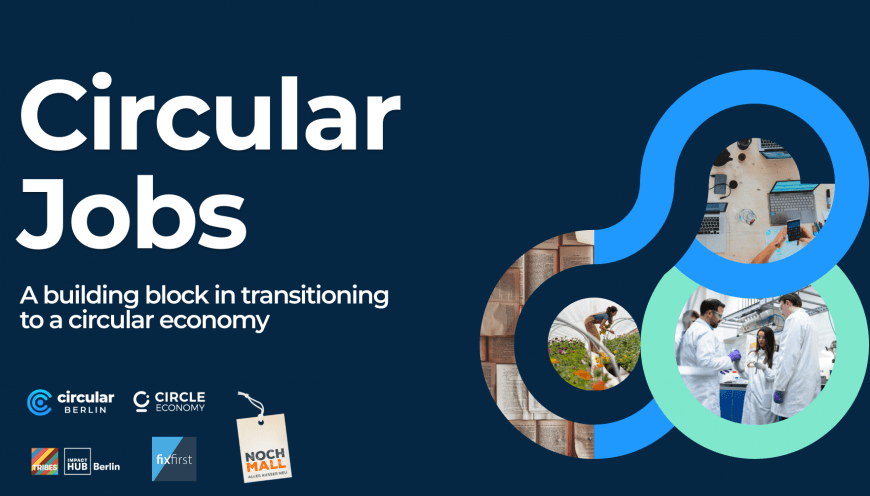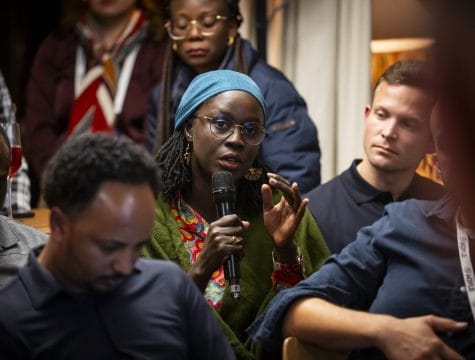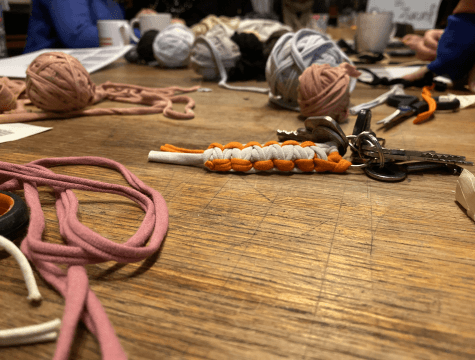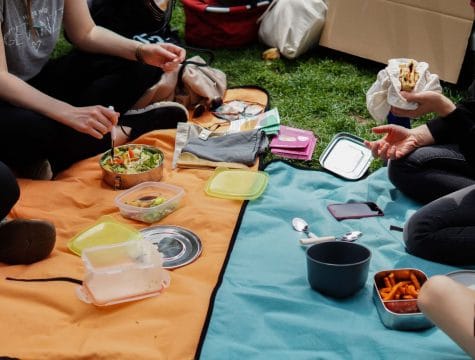The Circular Economy is the solution to address environmental crises through efficient and sufficient resources use.
This new way of thinking about future circular systems goes beyond the environmental issues we have to tackle, bringing in debates about how to finance a new system, and what skills we need in order to create a new economy based on circular economy principles. One of the building blocks in transitioning to a circular economy is through future jobs and employment opportunities.
On 22.09 Circular Berlin hosted an event in order to understand the topic and highlight the development of circularity in relation to job opportunities. The event took place on the one month anniversary of NochMall’s opening, the new Berlin Re-Use center, which is run by Berliner Stadtreinigung. The Circular Jobs event started with a virtual tour of the space to show how it operates and give people a glimpse behind the scenes.
After the virtual tour, the floor was open to key speakers, who gave insightful presentations on the Circular Jobs topic. Firstly, Esther Goodwin Brown from Circle Economy, set the framework for the discussion, introducing the work of Circle Economy conducted in the Netherlands. (See the full presentation here). Circular jobs are seen as the way to ensure a positive transition to circularity for work and workers. Circle Economy defines A CIRCULAR JOB: ‘as any occupation that directly involves one of the elements of the circular economy or indirectly supports such activities – as according to Circle Economy’s 7 key elements framework’.
After gaining this insight and understanding the framework behind circularity and work, we had a chance to explore three Berlin examples coming from: repair and reuse and looking into the role of non-for-profits in the circular job market.
The second speaker, Sebastian Daus, from FixFirst, a Berlin-based startup, introduced his vision and ambition to mix digital technology focusing on the area of repair. Sebastian highlighted the growing market of commercial repair in areas such as electronics, as well as explaining the opportunities it creates for new jobs. For example: for every 1000 tons of electronics repair, 200 jobs are created. You can check out his full presentation here.
NochMall, the used goods department Store, is an example of a business that has managed to create up to 20 jobs for workers. Frieder Soeling, the CEO, explained that it is not only about “big concepts”, but also it is crucial to have workers who can fulfill the ‘normal everyday’ functions needed when working in a store. The job is still focused on customer relationships, to retain customers and to make sure that the sale of “second hand” goods does not feel like selling garbage. The NochMall team works hard to clean, maintain and give a second life to the old items. Frieder pointed out that at the secondhand store, the customers are not only people who buy the goods, but they also bring their second hand items too, so therefore “you need to always be friendly”, tells Frieder. Check out his insights here.
The last input came from the example of Circular Berlin. We are a non-for-profit organisation and operate mainly with the help of volunteers. This was perhaps the most debatable area of the talk, as does this actually count as job creation? In our work we believe that it is not only about occupation, but about the internal impact we can achieve as an organisation. During 2 years of existence we have received about 60 requests to join our team. Young professionals are interested in gaining their first experience in the area of circular economy. This is a very good sign, nevertheless, to find a balance between employment and volunteering is not easy. Dina Padalkina says if you want to bring change you need to stay committed and self-organised and for the non-for-profit sector, that would be the most important quality a person could have. You can see our presentation, covering our values here.
But how can we actually scale circularity for the job market and make it countable? The answer to this question is through education. The findings and knowledge of the circular economy should become a mandatory field for higher education and also for vocational schools. We also need requalification for people already in key occupations that could benefit from circular thinking to take place as soon as possible, so change can start now.
You can watch the recorded event here:
This community event was co-organized by Dina Padalkina, Jessamy Hardie, Sofia Elisabeth Ratzinger and Doris Knickmeyer for Circular Berlin. If you have any questions feel free to contact our team via team@circular.berlin. To keep you informed on future events join our newsletter.




